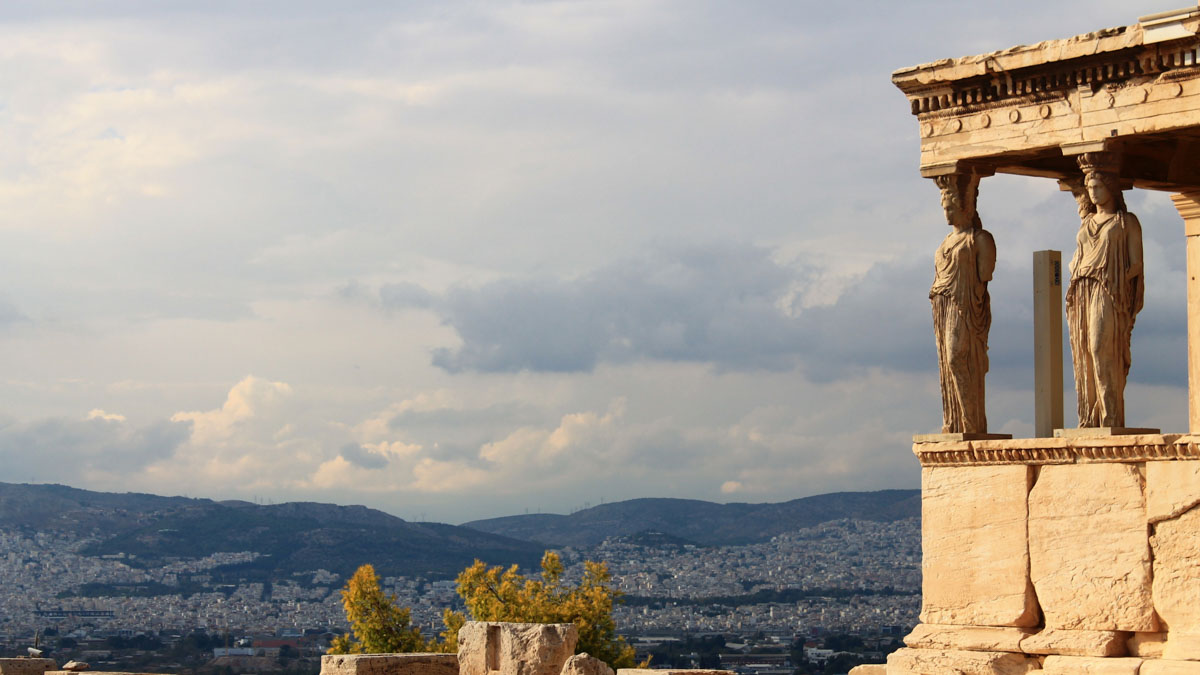Is Greek mythology pagan? By today’s definition, the worshipping of greek mythology would be considered a pagan practise.
Since the days of Achilles, Zeus, and Hades, monotheistic religions had formed and swept the world with popularity. Society began categorizing all religions outside of their arena as ‘pagan’, which is a notable term used to define non-believers and sinners in the early stages of the Bible.
We’re going to reveal facts, stories, and history to determine the answer.
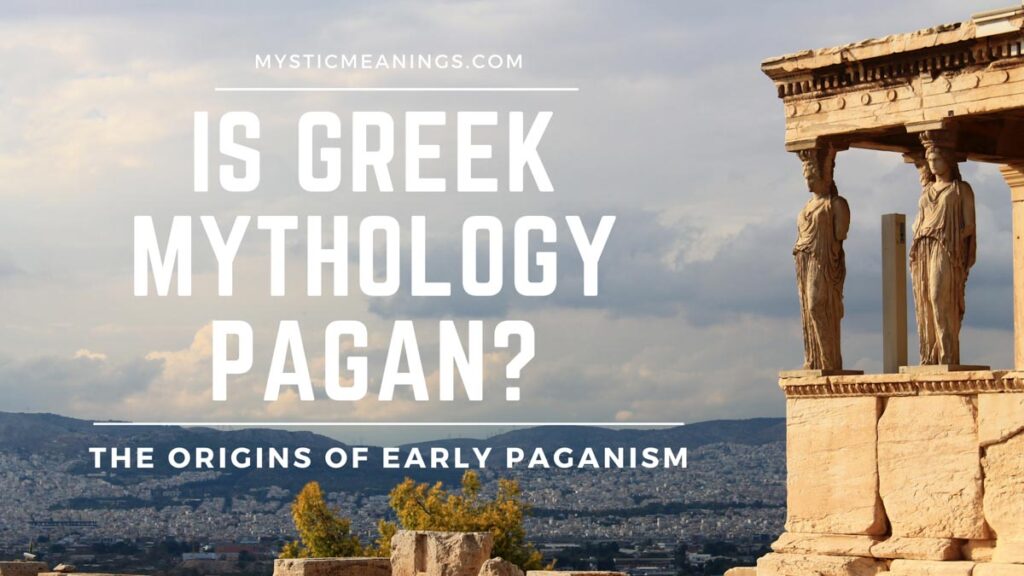
The Trojan War and Greek Mythology
The Trojan war is the most familiar anecdote from ancient Greece. A war that centered around the divine Helen of Troy created the great epics Iliad and Odyssey. It is perhaps a befitting turn of fate that the ancient Greek religion is called ‘Hellenic’.
Remnants of that war have remained in popular culture even today, especially due to the infamous ‘Trojan horse.’ The war not only saw kings perish in zealous combats but brought active participation by the Gods and Goddesses.
Was Greek Religion a Form of Pagan Worship?
The religious system of ancient Greece was termed paganism by Early Christians. Paganism is a generic word coined in the fourth century to describe anyone not conforming to the Judeo-Christian belief system.
However, ‘pagan’ implied rural or rustic by its Latin origins. This word was probably used to separate the peasantry from the opulence of the Roman church.
Early pagans were nature-worshipers and prayed to deities born of simple earthly imagination. Nevertheless, going by the luxury of Olympia (the home of the Greek Gods), paganism is probably not the exact word to describe ancient Greek mythology or religion.
However, deities such as Gaia (The Earth Mother) and Pan (The Mysterious Forest Being) were worshiped by the rich and poor alike.
A Brief History of Greek Mythology
Unlike the Holy Bible, the ancient Greeks did not have a definitive religious text. Therefore, the epics, Iliad and Odyssey are regarded as a treatise of Gods, demi-Gods, and humans in Greek society.
Other mythological texts include Hesiod’s ‘Work of Days’ and Theogony. The Odes by Pindar also offer an authoritative voice to ancient Greek society.
The epics began with an invocation to the Muses and assigned the role of Fate above even the rule of Zeus in heaven. Poseidon and Hades were the brothers of Zeus, who resided in the oceans and the underworld, respectively.
In retrospect, there might have been an attempt to steal the thunder of the Christian Holy trinity by replacing its enigma with the triple rulers. However, the major difference is that Greek gods had numerous human vices compared to the absolute sanctity of the Holy Spirit in Christianity.
Note the similitude between ancient Indian and Greek heritage. The most notable similarities are between Zeus and Indra. Also, Hermes and Narada seem to have the same character profile as messengers.
Although it may require academic and historical evidence, it is probably safe to assume a connection between the two great cultures.
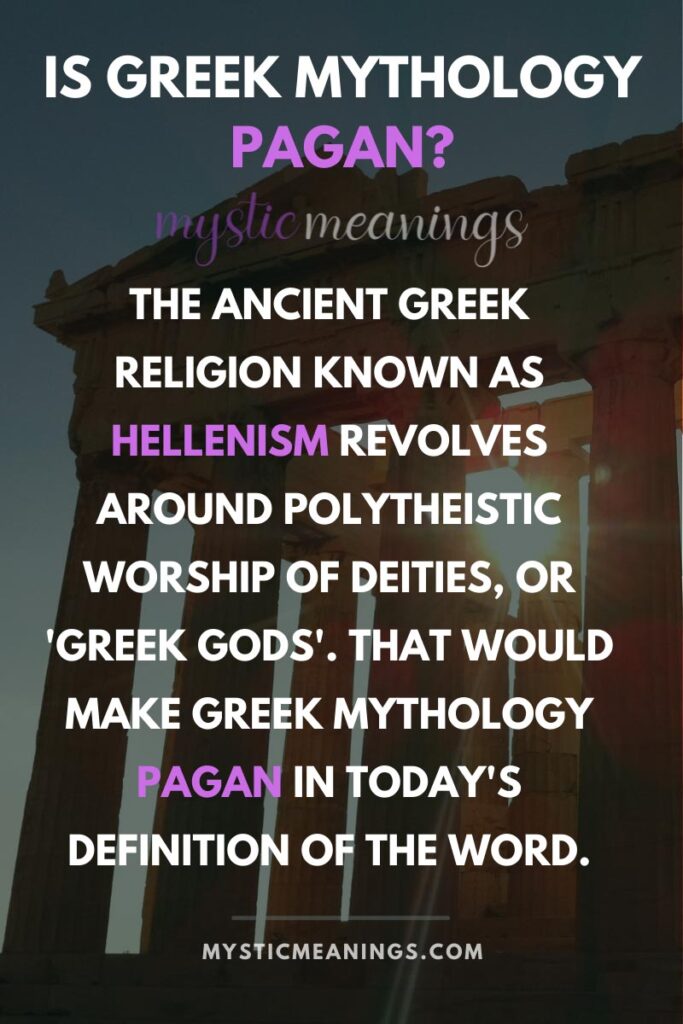
Prominent Religious Beliefs in Ancient Greece
The earliest religious belief in ancient Greece is derived from Hesiod’s Theogony. It assigns the ultimate creation myth to a primordial God called Chaos. From Chaos, emerged the other primordial Gods, Gaia (Earth) and Uranus (sky).
The mythological similitude of ancient Greece and Christian theology is also worth consideration. There’s a heavenly place called Elysium and an underworld called Hades. However, it is unclear whether Hades is a place for the Judgment of Souls in the afterlife. The Greek moral system was mainly based on the avoidance of Hubris as an abuse of pride.
In contrast, the Book of Revelations in the Holy Bible presents an elaborate description of the Last Judgment. However, Christianity from the Old Testament era bears similar references to spiritual sacrifices, just as on the alters of Athena.
Philosophers such as Plato and Pythagoras were among the few who adopted the idea of reincarnation.
The Pantheon of Key God Figures in Greece
Uranus and Gaia gave birth to Gods and Goddesses, known as Titans. There were six male Titans and six women Titanides. Marriage between the Titans and Titanides brought forth the first generation of six Olympians. They were Zeus, Poseidon, Hades, Demeter, Hestia, and Hera.
Hestia is the Virgin Goddess governing the hearth. Hera is the Queen of Gods and is the sister and wife of Zeus. Demeter or Deo is the Goddess of fertility and harvest.
Most Greek people agreed on a pantheon of twelve major deities residing in Olympia. Athena, Aphrodite, Apollo, Artemis, Hermes, and Hephaestus were the other Gods and Goddesses.
Aphrodite is the Goddess of love and the arts. Apollo is regarded as the God of music and dance. He is the brother of Artemis, the hunter Goddess. The spirit of war, Ares, is sometimes interchanged with Hades of the underworld. Hephaestus was the God of blacksmiths, carpenters, and metalworking.
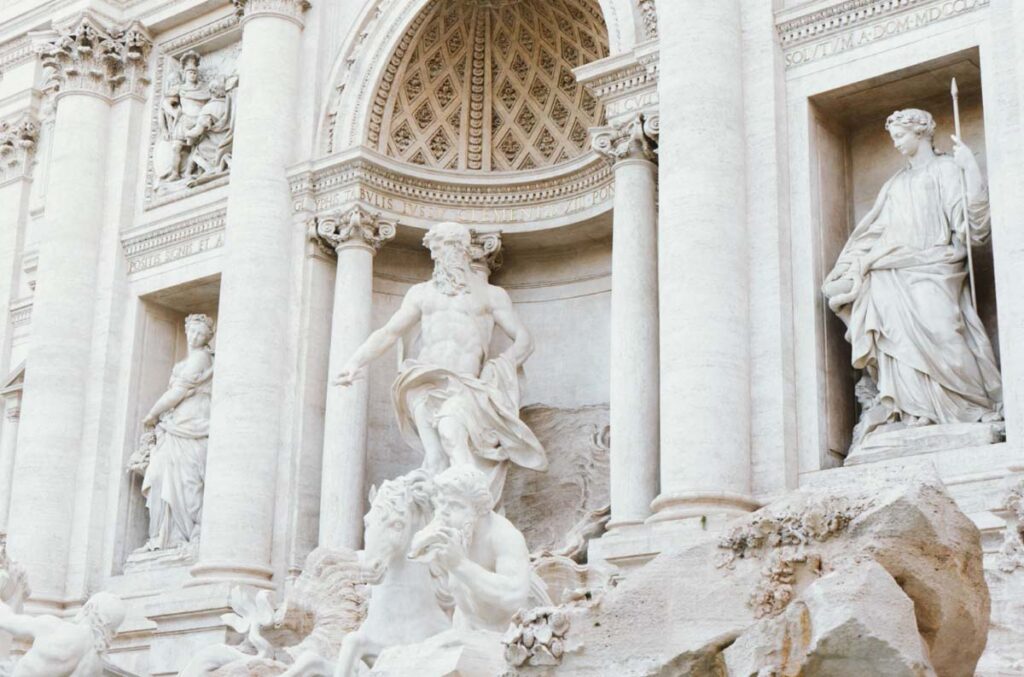
Rule of Fate
The three fate sisters, or the Moirai, have a central role in the Theogony of Hesiod. Clotho is the spinner of Fate; Lachesis allots all beings their destinies, whether they are Gods or humans. Atropos cuts the thread at the end, ending the mortal coil.
They are daughters of Nyx, a primordial Night Goddess. She is feared even by Zeus, the King of Gods. Nyx is a mysterious deity, daughter of Chaos. She is said to reside in Tartarus, the innermost depths of the underworld. In another myth, Persephone is regarded to be the Queen of the Underworld.
Other Mythological Beings
Greek mythology also mentions other supernatural beings. Centaurs were half-human and half-horse creatures. Again, Satyrs were half men-half goats. Scylla and Charybdis are sea monsters who occupy either side of a narrow passage for the ships. Cyclopes were one-eyed monsters, while Minotaurs were half-men-half-bull creatures.
Perhaps, the most terrifying of them is the legend of Medusa. She was once a vowed priestess in the temple of Athena. When Poseidon outraged her modesty in the temple, Athena gave certain powers to Medusa. Her gaze could turn men into stone, and her hair was made of snakes.
Sirens and Nymphs also appear in Greek mythology as dark beings. The melody of Sirens can lure tempted sailors to their deaths. Nymphs are free-spirited forest fairies, often dancing to the tunes of Pan.
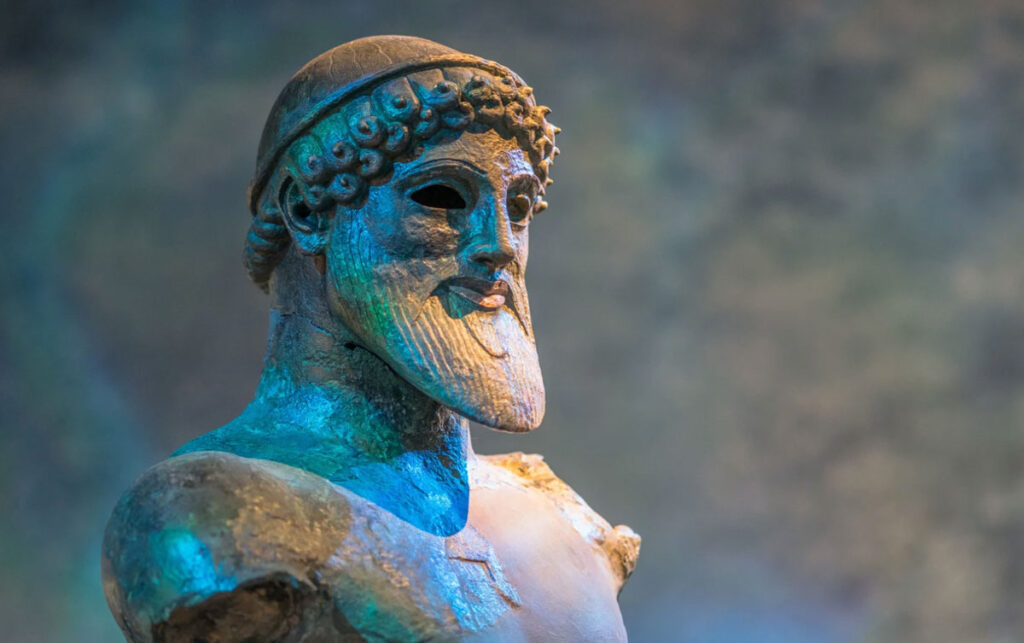
So, Is Greek Mythology Pagan Worshipping?
It is important to view religions in the modern context as a continuity of ancient traditions.
The ancient culture of Greece did involve worshiping pagan deities known as today’s popular mythological characters in the Olympian pantheon. However, such religious practices became obsolete with time as the temple of Olympian now stands in ruins.
The religious demographic of modern Greece mainly conformed to Orthodox Christianity. Ironically, it required the passage of a judgment in an Athens court to accept the worship of old deities as a legal religious pursuit.
This sort of puts this question into perspective: Who made Zeus illegal anyway? Point to note, Athens derives its stature from Athena, the Warrior Goddess.
Here is a quick overview on what the foundation of most of the world’s ancient and modern religions are based on.

